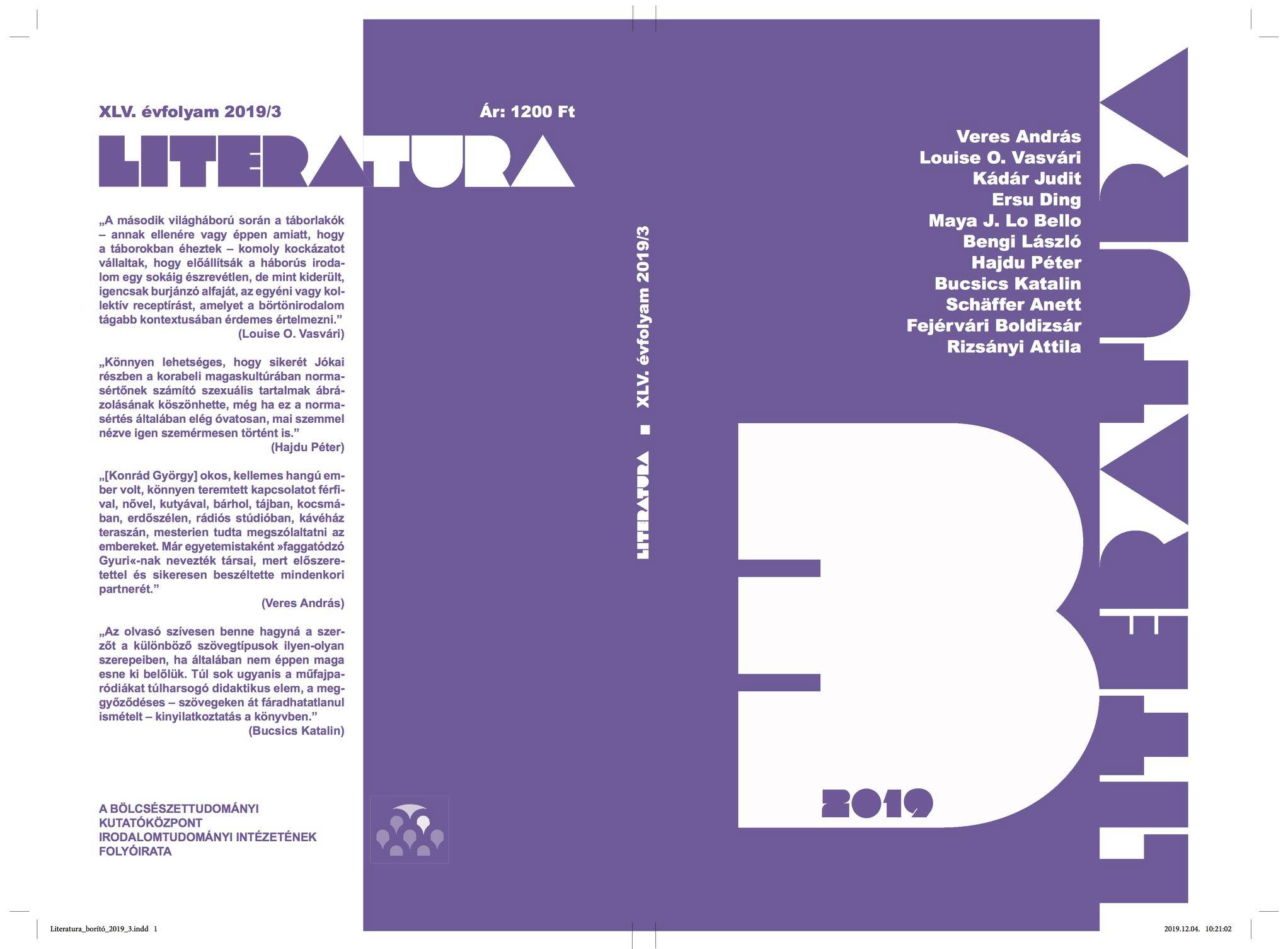A női önérdek-érvényesítés kivételes esete a Horthy-korszakban
Tormay Cécile és a Bujdosó könyv
Absztrakt
An Exceptional Case of Women’s Self-Promotion in the Horthy Era. Cécile Tormay
and Her Bujdosó könyv (An Outlaw’s Diary)
The defeat of Hungary and the dissolution of the Austro-Hungarian Monarchy following World War I left the writer Cécile Tormay, member of the so-called old „Christian gentlemanly middle class” in a more vulnerable position than most of her female contemporaries of the same social status. Due to her sexual orientation, she did not want to get married, nevertheless she was yearning for financial independence, but she did not have appropriate qualifications to get a job befitting her status. The potential transfer of the family’s rural estates to newly created countries and the fear of losing private property aggravated her anxiety and increased her anger toward the newly born Hungarian People’s Republic, therefore Tormay stood at the forefront of the counter-revolutionary conspiracy of the old elite against the democratic government of Count Mihály Károlyi from the beginning. She had recorded important political events and her commentaries on them in the form of a diary from 31 October 1918, the outbreak of the revolution until the beginning of August 1919 when Miklós Horthy, the future governor-regent became the commander in chief of the counter-revolutionary National Army. After finishing the draft, she spent almost two and a half years editing the manuscript for publication. In that period the country experienced a great deal of turmoil, even the form of government – republic or monarchy – was undecided.
The aim of this paper is to examine Tormay’s conscious deliberation in selecting information during editing the diary (its first volume was published at the end of December 1920, the second one was ready for printing in December 1921) in order to demonstrate her commitment to the antidemocratic elite and strengthen her unstable social position. A strong supporter of the former Prime Minister, the monarchist Count István Tisza who had been assassinated on the day of the outbreak of the democratic revolution in 1918, she concealed her true opinion about her preferred form of state. She also withheld the names of the main leaders and financial backers of the counter-revolution (persons from Count István Bethlen, the future Prime Minister’s circles) in case the old elite loses the leadership of the country. However, she took care to refer to her family members as active supporters of the counter-revolution, emphasizing her own leading role. Instead of exploring who bore responsibility for the war, she made the Jews scapegoats, relying on growing post-war anti-Semitism. When the old elite regained power, Tormay and several members of her family were rewarded for their efforts described in Bujdosó könyv. Her brothers, brothers-in-law and other distant relatives got highly paid public service jobs and Cécile Tormay was appointed editor-in-chief of a newly founded conservative literary magazine, the Napkelet (Orient). In spite of the social and financial insecurity of her youth, due to her craftiness and cautious handling of information, finally she was able to break into the political and intellectual elite that dominated Hungarian society between the two world wars.



